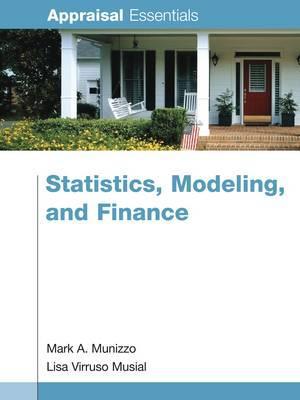Question
1) The primary goal of the financial manager is A) minimizing risk. B) maximizingprofit. C) maximizingwealth. D) minirnizingreturn. 2) Corporate owner's receive reaLizable return through
1) The primary goal of the financial manager is A) minimizing risk. B) maximizingprofit. C) maximizingwealth. D) minirnizingreturn. 2) Corporate owner's receive reaLizable return through A) earnings per share and cash dividends. B) increase in share price and cash dividends. C) increase in share price and earnings per share. D) profit and earnings Per share. 3) The wealth of the owners of a corporation is represented by A) profits. B) earnings per share. C) share value. D) cash flow. 4) Wealth maximization as the goal of the firm A) the Board of Directors. B) the firm's employees. C) the federal government. D) the firm's stockholders. implies enhancing the wealth of 5) The goal of profit maximizationwould result in priority for A) cash flows available to stockholders. B) risk of the investment. C) earnings per share. D) timing of the retums. 6) Profit max\mlzation as a goal is not ideat because it does NOT directly consider A) risk and cash flow. B) cash flow and stock Price. C) risk and EPS. D) EPS and stock Price. Page | 2 7) Profit maximization as the goal of the firm is not ideal because A) profits are only accounting measures. B) cash flows are more representative of financial strength. C) profit maximization does not consider risk. D) profits today are less desirable than profits earned in future years. 8) Profit maximization fails because it ignores all EXCEPT A) the timing of retums. B) earnings per share. C) cash flows available to stockholders. D) risk. 9) The key variables in the owner wealth max\mization process are A) earnings per share and risk. B) cash flows and risk. C) earnings per share and share price. D) profits and risk. 10) Cash flow and risk are the key determinants in share price. Increased cash flow results in _, other things remaining the same. A) a lower share price B) a higher share price C) an unchanged share price D) an undetermined share price 11) Minden Co has current assets that consist of cash: $20,000, receivables: $70,000 and inventory: $90,000. Current liabilities are $75,000. The current ratio is: a) 2.4:l; b) 2.2:t; c) 2.0:l; d) 1.8:1: e) none ofthe above. l2)Minden Co has current assets that consist of cash: $20,000, receivables: $70,000 and inventory: $90,000. Current liabilities are $75,000. The quick ratio is: Page I 3 a) 7.7:1: b) 1.2:l: c) 1.0:1; d) 0.8:1 e) none ofthe above. 13) Minden Co has current assets that consist of cash: $20,000, receivables: $70,000 and inventory: $90,000. Current liabilities are $75,000. On the basis of the current ratio and the quick ratio, Minden Co is: a) highly illiquid; b) somewhat illiquid; c) adequately liquid; d) excessively liquid; e) none ofthe above. 14) Minden Co has sales of $500,000, operating profit of $50,000, interest expense of $10,000, tax expense of $20,000, total equity of $125,000 and total debt of $275,000. Their return on sales is: a) b) c) d) e) 8.UYo; 10.0%o; 12.5Yo; 16.UYo; 20.0%. 15) Minden Co has sales of $500,000, operating profit of $50,000, interest expense of $10,000, tax expense of $20,000, total equity of $125,000 and total debt of $275,000. Their return on assets is: a) 8.0Yo; b) 10.0%; c) 12.5%o; d) 16.0%; e) 20.0%. Page | 4 16) Minden Co has sales of $500,000, operating profit of $50,000, interest expense of $10,000, tax expense of $20,000, total equity of $125,000 and total debt of $275,000. Their retum on equity is: a) 8.0%o; b) 10.0%; c) 12.5o/o; d) 16.0%; e) 20.0%. 17) Minden Co has sales of $500,000, operating profit of $50,000, interest expense of $10,000, tax expense of $20,000, total equity of $125,000 and total debt of $275,000. Their retum on equity in comparison to their return on assets is: a) roa is higher than roe because of leverage; b) roa is lower than roe because of leverage; c) roa is the same as roe; d) they are both related to the return on sales; e) none ofthe above. 18) Minden Co has sales of $500,000, operating profit of $50,000, interest expense of $10,000, tax expense of $20,000, total equity of $125,000 and total debt of $275,000. Their debt to assets ratio is: a) b) c) d) e) 50.00%; 65.00%; 68.75Yo; 220.00%; none ofthe above. 19) Minden Co has sales of $500,000, operating profit of $50,000, interest expense of $10,000, tax expense of $20,000, total equity of $125,000 and total debt of $275,000. On the basis of the debt to equlty ratio, Minded would be considered to have: a) too much debt, making it a risky company to invest in; b) justenoughdeb! c) too liule debt, making it a risky company to invest in; d) too little debt, making it a low profitability investment; Page I 5 e) none ofthe above. 20) Minden Co has sales of $500,000, operating profit of $50,000, interest expense of $10,000, tax expense of $20,000, total equity of $125,000 and total debt of $275,000. The debt carries interest @ s%per annum. The interest cover ratio is: a) 5X; b) 3X; c) 2X; d) 1.5X; e) none of above
Step by Step Solution
There are 3 Steps involved in it
Step: 1

Get Instant Access to Expert-Tailored Solutions
See step-by-step solutions with expert insights and AI powered tools for academic success
Step: 2

Step: 3

Ace Your Homework with AI
Get the answers you need in no time with our AI-driven, step-by-step assistance
Get Started


